Poor diet is intrinsically linked to hair loss and numerous hair and scalp health concerns.
Choosing a variety of foods, of correct amounts for individual requirements when eating for healthy hair can be challenging. It’s even harder to decide what eating for healthy hair looks like with the numerous flashy claims on social media telling you that intermittent fasting is a quick and easy way to lose weight and gain welcome health benefits.
Where eating for hair health is concerned the 16/8 intermittent fasting and the Fast 800 crash diet, really are the kind of eating plan to avoid. As are any other eating pattern or diet that isn’t hair-friendly or leads to rapid weight loss.
As far as hair is concerned, if a regular source of nutritious energy isn’t available during waking hours, the hair growth cycle will be disrupted. As will all other biological mechanisms that grow long, strong, voluminous, lustrous hair. The only kind of food fast that healthy hair can survive is the overnight fast.
The first symptoms of excessive shedding are seen as a concern trichologists call telogen effluvium. This concern is generally temporary. All of the shed hairs grow back, as and when a healthy diet is again nourishing and refueling the growth cycle.
A similar type of excessive hair loss may also present in individuals who suffer from eating disorders; anorexia or bulimia. This kind of health concern prevents individuals from eating a balanced diet – hair growth cycle, and body organs react by malfunctioning.
Some essential vitamins and minerals are held in the fat of tissues in the body in reserve. If these stores aren’t replenished or healthy levels maintained, the first physical signs resulting from the chink in the armor will most likely be hair loss. This may then be followed by a decline in well-being before the body organs and systems falter.
Yes, hair really is a barometer for health! A hair loss concern is generally suspected to be a warning sign that health problems are evolving.
Hair cells are one of the fastest developing cells in the human body, 2nd only to new blood cells being made in the bone marrow. This non-essential tissue that is the hair essentially needs a constant supply of energy in the form of a healthy, balanced dietary intake. For hair follicles and shafts to develop, grow long, strong, and healthy, and remain in their respective stage of the growth cycle, an eating pattern of at least 3 meals that contain food items from all food groups, with nutritious snacks in every 24-hour stretch is vital. A structured eating pattern will also give your body the support required to meet the demands of, fast working processes, survive, numerous internal and external assaults, and stay healthy.
A nourishing breakfast that includes protein, is the most important meal when making a conscious effort to eat for healthy hair growth or if preventing or overcoming, a recurring scalp or hair health concern. For optimal healthy development, another consistency the hair growth cycle reaps rewards from is a 4-hourly supply of nutritious snacks that contain an assortment of all B and C vitamins.
Vitamins and minerals that you need to consume in balanced amounts to optimise and support hair growth are; Vitamin D, Vitamin E, Vitamin C, and all the B Vitamins, Magnesium, Iron (heme iron contained in red meat, poultry, and fish, is higher quality than non-heme iron), Copper, Zinc — be mindful of the risk of toxicity with Vitamin A, Calcium and Selenium. Micronutrient imbalance can prevent interrelated absorption which may then worsen hair loss.
To provide your body and hair with the very best chance of sustaining optimal health & growth, don’t be hard on yourself. Care for your hair inside and out. Regularly eat fresh clean energizing food, and cleanse your scalp and hair regularly. A healthy scalp environment is key. As an extension of your facial skin, your scalp should be kept equally as clean, well-nourished, and as hydrated as your face. A healthy scalp sustains a healthy hair growth cycle, and a healthy growth cycle sustains healthy hair development and growth.
Healthy hair is an extension of a healthy body, eat for healthy hair and give all your body systems and organs a boost.
If you suspect scalp or hair health concerns are being exacerbated by nutritional imbalance, you may have reached a time when you need to be looking more carefully at your diet, hair care regimen, and lifestyle.
If this blog post has sparked questions that you’d like help or advice about hair loss or thinning, please get in touch with a trichologist near you. A trichologist will walk you through the possible causes of your concern and help you identify, understand, and implement a plan that will help you grow the best hair you can.

Leave a Reply